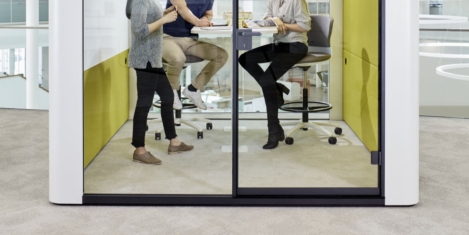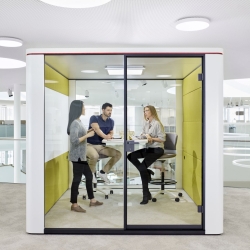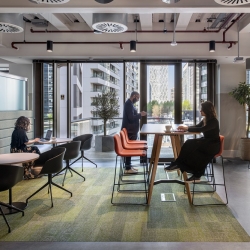To provide the best experiences, we use technologies like cookies to store and/or access device information. Consenting to these technologies will allow us to process data such as browsing behaviour or unique IDs on this site. Not consenting or withdrawing consent, may adversely affect certain features and functions.
The technical storage or access is strictly necessary for the legitimate purpose of enabling the use of a specific service explicitly requested by the subscriber or user, or for the sole purpose of carrying out the transmission of a communication over an electronic communications network.
The technical storage or access is necessary for the legitimate purpose of storing preferences that are not requested by the subscriber or user.
The technical storage or access that is used exclusively for statistical purposes.
The technical storage or access that is used exclusively for anonymous statistical purposes. Without a subpoena, voluntary compliance on the part of your Internet Service Provider, or additional records from a third party, information stored or retrieved for this purpose alone cannot usually be used to identify you.
The technical storage or access is required to create user profiles to send advertising, or to track the user on a website or across several websites for similar marketing purposes.
 A new study from IBM claims that while employees rank meaningful work as something they care about deeply, executives say it’s the least important factor to their teams. The study, Augmented work for an automated, AI-driven world surveyed 3,000 global C-Suite executives across 20 industries and 28 countries. It also suggests that executives in the UK estimate that 41 percent of their workforce will need to reskill as a result of implementing AI and automation over the next three years. (more…)
A new study from IBM claims that while employees rank meaningful work as something they care about deeply, executives say it’s the least important factor to their teams. The study, Augmented work for an automated, AI-driven world surveyed 3,000 global C-Suite executives across 20 industries and 28 countries. It also suggests that executives in the UK estimate that 41 percent of their workforce will need to reskill as a result of implementing AI and automation over the next three years. (more…)













 As organizations adopt hybrid work, reduce their real estate footprint and redesign floor plans, space planners are running into a slew of new challenges. Yesterday’s antiquated tools can’t handle these challenges, because they were built for the old, relatively static world of work.
As organizations adopt hybrid work, reduce their real estate footprint and redesign floor plans, space planners are running into a slew of new challenges. Yesterday’s antiquated tools can’t handle these challenges, because they were built for the old, relatively static world of work. 








 Workforces need to evolve now more than ever.
Workforces need to evolve now more than ever. 










August 14, 2023
What the office of the future will really look like is the office of today
by Mark Eltringham • Comment, Workplace design